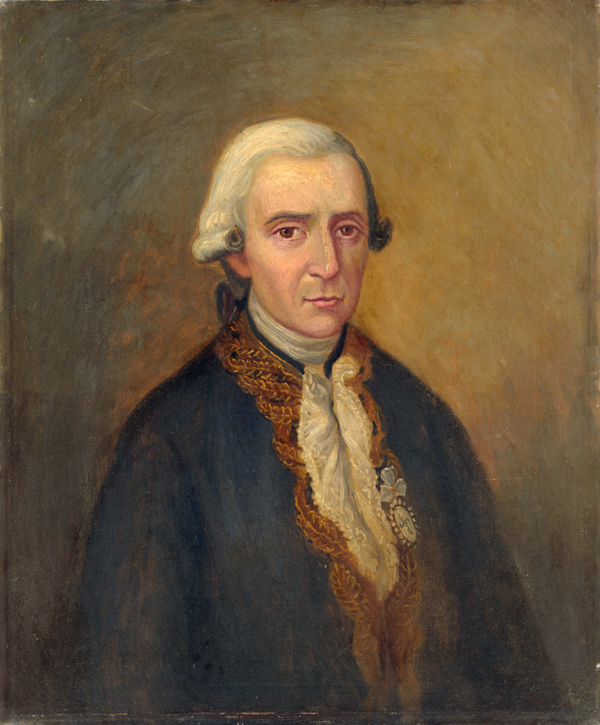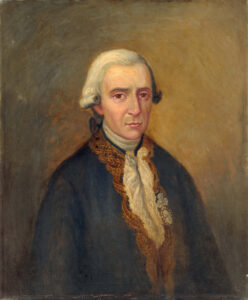Antonio de Ulloa y de la Torre Guiral
Explorer, astronomer, and administrator Antonio de Ulloa was the first Spanish governor of Louisiana, serving from 1766 to 1768.

Courtesy of Louisiana State Museum
Governor Antonio de Ulloa. Molinary, Andres (Artist)
Explorer, astronomer, and administrator Antonio de Ulloa was the first Spanish governor of Louisiana, serving from 1766 to 1768. Governing a people who did not wish to be under Spanish control, Ulloa further upset them by remaining on a military post in Belize and refusing to provide his credentials to the French Superior Council. Fewer than three years after his arrival, he was forced to depart for Havana after the Insurrection of 1768, an uprising of French colonists opposed to Spanish rule. Before becoming governor, Ulloa and another Spanish explorer discovered the metallic element platinum while on a scientific expedition to the region now known as Ecuador.
On January 12, 1716, Antonio de Ulloa Y de la Torre Guiral was born to Bernardo de Ulloa, an economist, and Josefa de la Torre-Guiral in Seville, Spain. He attended Seville’s church school before enrolling as cadet in the Naval Academy in Cadiz in 1733. In 1735, he joined the French Geodesic Mission, an important scientific expedition to Ecuador to measure an arc of the meridian. It was during this voyage that Ulloa discovered platinum. He would subsequently publish several books, including narratives about the expedition co-written by his companion, Jorge Juan. In 1750, Ulloa departed on a mission to northern Europe to report on military installations. A scientist, he is credited with founding the Museum of Natural History of Madrid and was a member of several royal science academies.
Before becoming governor of Louisiana, Ulloa served as governor of Huancavelica, Peru, in 1758, where he attempted to improve the output of a quicksilver (mercury) mine essential for silver production. In May 1765, King Charles III appointed Ulloa the first Spanish governor of colonial Louisiana but Ulloa did not arrive in the colony until March 5, 1766. Upon his arrival, Ulloa angered the French populace by governing by proxy for months after his arrival and restricting trade with French ports, depriving the colony of its supply of French wine. His marriage by proxy to a woman from Santiago, Chile, further alienated him from Creole society. Never having won the loyalty of Louisiana’s French colonists, Ulloa departed for Havana in October 1769 after French colonists lead threatened his administration with violence during the Insurrection of 1786.
After leaving Louisiana Ulloa commanded a Spanish squadron against English raiders in the American War of Independence in 1780. He retired to Cadiz, in southern Spain, as admiral of the fleet, and died on July 5, 1795, on Isla de Leon, Cadiz, where he was interred.
Adapted from J. Preston Moore’s entry for the Dictionary of Louisiana Biography, a publication of the Louisiana Historical Association in cooperation with the Center for Louisiana Studies at the University of Louisiana, Lafayette.
Sources: Charles Gayarré, History of Louisiana, 5th ed., 4 vols. (1965); Julio Guillán, Los tenientes de Navio (1936); J. Preston Moore, Revolt in Louisiana: The Spanish Occupation, 1766-1770 (1976); Vicente Rodriguez Casado, Primeros años de dominación española en la Luisiana (1942); Arthur P. Whitaker, “Antonio de Ulloa,” Hispanic American Historical Review, XV (1935); Eric Beerman, “Antonio de Ulloa, First Spanish Governor of Louisiana,” New Orleans Genesis, XVII, No. 66 (March, 1978).
